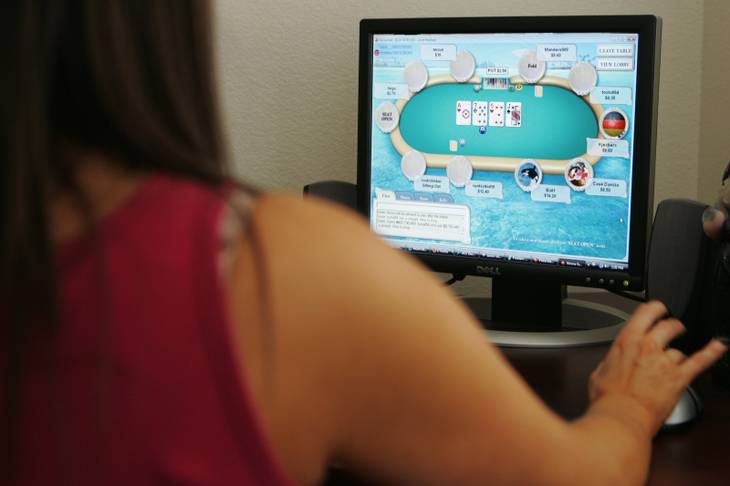Sun Coverage
The state Gaming Control Board in February will begin taking applications to license companies to operate Internet poker sites, according to a state gaming regulator.
Mark Lipparelli, chairman of the Control Board, told industry professionals attending the two-day U.S. Online Gaming Law conference at Aria last Thursday that the agency would be geared to begin investigations that month.
Lipparelli said the process should be quicker for companies already holding other licenses in Nevada. Once licensed, companies would be able to offer online poker play within the state’s boundaries in closed-loop settings similar to the way some companies offer sports betting online or by telephone.
Companies still wouldn’t be allowed to offer online poker play to people living outside Nevada’s borders.
The federal Unlawful Internet Gambling Enforcement Act prohibits companies from accepting payments related to online wagering, but allows several exceptions, including intrastate and intratribal wagering and fantasy sports.
Companies with other Nevada licenses would have the new title attached to their licenses while companies new to the state would be vetted with full licensing investigations, which often take several months. Current licensees seeking online poker licensing will have to prove that their technology will be able to limit play to state residents of legal age.
“We’ve taken our brick-and-mortar operational standards to a new level,” Lipparelli said. “We’re going to continue to be flexible, but we think we’ve set the bar high for licensing and suitability.”
Guided by laws passed by the Nevada Legislature earlier this year, the Control Board and the Nevada Gaming Commission began drafting regulations and technical standards over the summer and are on the verge of approving them in December. Lipparelli said because the online gaming environment is a new world, it’s possible that regulatory revisions may be considered in the months following initial passage of the new regulations.
About 75 scholars, regulators and legal experts from across the globe attended the conference, which ended today. In a panel session today, former Rep. Jon Porter gave a bullish assessment of the prospects for passage of a federal Internet poker law contrary to remarks from an opening-day speaker.
“I think legalization is closer now than ever before,” said Porter, who served three terms in the House and now is an adviser to the Poker Players Alliance.
A day earlier, gaming law expert I. Nelson Rose told the conference that he was pessimistic about the prospects of passage of federal Internet gaming legislation because he said lawmakers have yet to come together on any significant legislation because of political differences.
Porter said because the need for tax revenue is so great and the federal government faced the prospect of automatic program cuts if some form of tax legislation wasn’t approved that politicians would find the political will to approve an obvious source of revenue, the taxation of online poker play.
But he added that industry leaders needed to lobby their positions and stay vocal to pressure lawmakers.
“It’s not going to happen if you’re waiting for Caesars or state lotteries of the Poker Players Alliance to carry the ball,” said Porter, who added that a consistent message from the industry could move legislation forward. “Sometimes the industry is its own worst enemy.”
He also said he wouldn’t be surprised if Internet gambling legislation was attached to some other critical bill late in the session, a strategy that worked in the passage of the Unlawful Internet Gambling Enforcement Act. That bill was attached to the so-called SAFE Port Act.
Porter said he thinks Sen. Jon Kyl, R-Ariz., one of the leading opponents of Internet gambling, could be softening his position. But others attending the conference said they believed Kyl would only support a bill that would provide a benefit to his state’s tribal casinos.
California’s tribal casinos also are positioning themselves for the possibility the legalization of Internet gaming.
In another panel, Sam Cohen, government affairs and legal officer for the Santa Ynez Band of Chumash Indians and Pierre Wuu, director of the California Online Poker Association, described how two bills have been introduced in California to legalize Internet poker.
Panelists said the proposals, backed by tribes and poker room operators, are riding the momentum of the state’s dire need for tax revenue.
Wuu said a law enabling intrastate poker would be a boon for the state because an estimated 2 million Californians play online poker.
While some tribes have been reluctant to support an Internet poker bill, fearing online games would hurt brick-and-mortar poker operations, polls show broad support for permitting online games.
